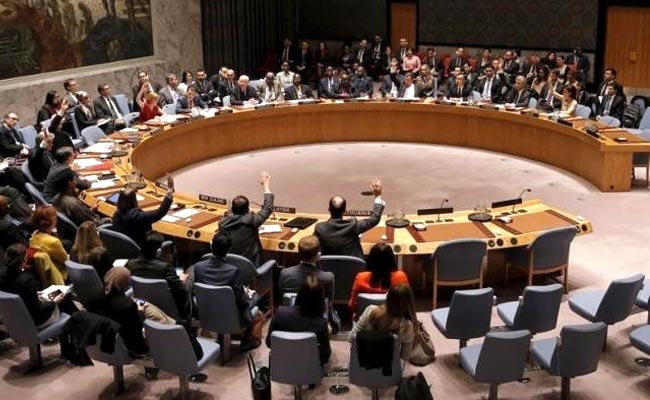
The Security Council has 15 members of which five are permanent - China, Russia, US, UK and France.
- India has been petitioning expansion of the UN Security Council
- G4 club claims UNSC is dated and does not reflect a new world order
- Security Council has 15 members of which five are permanent
Did our AI summary help?
Let us know.
New Delhi:
China has reacted with caution to a new step proposed by India to help it become a permanent member of the powerful United Nations Security Council. Last week, India said that it was willing, in exchange for induction, to surrender the important veto right that permanent members are entitled to.
The Security Council has 15 members of which five are permanent - China, Russia, the US, the UK and France. Apart from Beijing, they have all supported India's claim that as a trillion dollar economy and a major South Asian power, it must be given better representation on the council, which decides peace and security strategy.
India has been petitioning an expansion of the council along with Brazil, Germany and Japan -together, the club is called G4. The countries say that the formation the Security Council is dated and does not reflect a new world order.
"Security Council reform concerns issues like membership categories, regional representation, veto power," said Chinese Foreign Ministry spokesperson Hua Chunying to news agency Press Trust of India.
These issues "can only be addressed by reaching a package solution that accommodates all parties' interests and concerns through broad-based democratic consultations," Hua said.
Pakistan, a close ally of China, opposes any additional permanent members to the Security Council. Pakistan is a member of a group that has proposed a new category of members - not permanent - who would serve on the council for longer than the current two-year term for rotating members.
China is among the countries that have also blocked India's efforts to enter the elite Nuclear Suppliers Group or NSG, which has 48 member countries and controls the trade of sophisticated nuclear technology and material.
The Security Council has 15 members of which five are permanent - China, Russia, the US, the UK and France. Apart from Beijing, they have all supported India's claim that as a trillion dollar economy and a major South Asian power, it must be given better representation on the council, which decides peace and security strategy.
India has been petitioning an expansion of the council along with Brazil, Germany and Japan -together, the club is called G4. The countries say that the formation the Security Council is dated and does not reflect a new world order.
"Security Council reform concerns issues like membership categories, regional representation, veto power," said Chinese Foreign Ministry spokesperson Hua Chunying to news agency Press Trust of India.
These issues "can only be addressed by reaching a package solution that accommodates all parties' interests and concerns through broad-based democratic consultations," Hua said.
Pakistan, a close ally of China, opposes any additional permanent members to the Security Council. Pakistan is a member of a group that has proposed a new category of members - not permanent - who would serve on the council for longer than the current two-year term for rotating members.
China is among the countries that have also blocked India's efforts to enter the elite Nuclear Suppliers Group or NSG, which has 48 member countries and controls the trade of sophisticated nuclear technology and material.
Track Latest News Live on NDTV.com and get news updates from India and around the world

